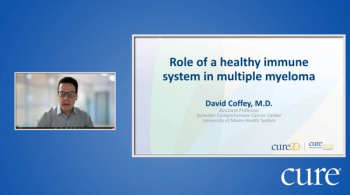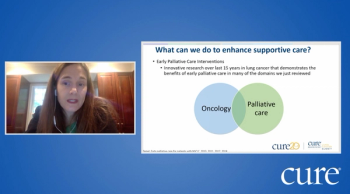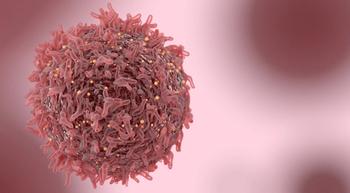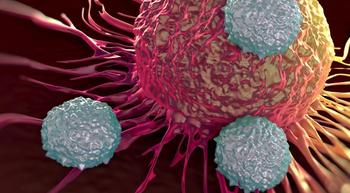
Watch Dr. Jamile M. Shammo, from Northwestern University Feinberg School of Medicine, discuss current treatment options in polycythemia vera during the CURE Educated Patient MPN Summit.

Miranda Lankas, Assistant Editor for CURE®, started at MJH Life sciences in August 2022. She completed an undergraduate and Master of Arts degree in literature at Temple University. Miranda’s passions include embroidery, color guard, and picking up new languages. Email her in English, French, or Japanese at [email protected].

Watch Dr. Jamile M. Shammo, from Northwestern University Feinberg School of Medicine, discuss current treatment options in polycythemia vera during the CURE Educated Patient MPN Summit.

Patients with breast cancer, regardless of their menopausal status, may face worse cognitive ability with chemotherapy and endocrine therapy, although this may return to its pretreatment level after 36 months.

Watch Dr. David Coffey, from Sylvester Comprehensive Cancer Center at the University of Miami, discuss the role of a healthy immune system during the CURE® Educated Patient® Multiple Myeloma Summit.

Watch Dr. C. Ola Landgren, from Sylvester Comprehensive Cancer Center at the University of Miami, discuss novel treatments for newly diagnosed patients during the CURE® Educated Patient® Multiple Myeloma Summit.

In a recent interview with Cancer Horizons®, the medical liaison for KidneyCAN, discussed the basics of kidney cancer and what she thinks patients should know.

The FDA approved Imjudo plus Imfinzi for advanced hepatocellular carcinoma, although more work is needed to develop a treatment that cures patients, an expert said.

Women who face menopause after a cancer diagnosis may be able to manage their symptoms without relying on estrogen-based therapies, although discussing this with a cancer team will help patients find what’s best for them.

Watch Dr. Jessica R. Bauman, from Fox Chase Cancer Center, discuss palliative care during the CURE Educated Patient Lung Cancer Summit.

These results, which showed that a patient with inflammatory breast cancer may have an increased risk for brain metastases if certain factors are present, may alert patients and doctors to consider routine brain scans while they undergo treatment for their disease.

The use of a multi-agent chemotherapy regimen resulted in improved outcomes in a group of children with pleuropulmonary blastoma, a rare form of lung cancer, when compared with other regimens.

Combination treatment with two PD-1 inhibitors — Yervoy and Opdivo — did not improve survival without cancer recurrence compared with Opdivo alone in patients with high-risk melanoma, a type of skin cancer.

Nearly two thirds of patients with GISTs — a rare type of cancer that often begins in the digestive system — indicated that their overall quality of life after treatment had been affected by cancer-related cognitive impairments, also referred to as “chemo brain,” according to analysis of survey data.

The addition of Bavencio to an Inlyta regimen may help stabilize disease in some patients with thymic carcinoma, but one expert stressed that checkpoint inhibitors are “problematic” for patients diagnosed with thymoma, a type of rare cancer.

Opting for hormonal or nonhormonal fertility preservation is unlikely to affect a woman’s risk for death or disease recurrence after receiving a diagnosis of breast cancer.

Although rates of pathologic complete response to neoadjuvant — also known as presurgical — chemotherapy were lower in men than women with breast cancer, this may highlight an area of further research of treating this cancer in men.

Long-term follow-up shows that treatment with Empliciti plus pomalidomide and dexamethasone continues to significantly increase survival rates in patients with relapsed or refractory multiple myeloma, a persistent cancer affecting white blood cells that may be resistant to treatment.

The researchers hypothesize that treatment with the investigational drug combined with chemoradiotherapy may reduce the need for invasive surgery to remove the rectum and surrounding tissue in this patient population.

Treatment with a combination of Imfinzi and the novel drug tremelimumab demonstrated promising results in certain patients with advanced or metastatic sarcoma, which are rare cancers of the bone and soft tissue.

Although very few patients are informed about the effects that breast cancer treatments may have on their sexual health, many patients expressed wanting that information throughout all stages of their treatment, according to study findings.